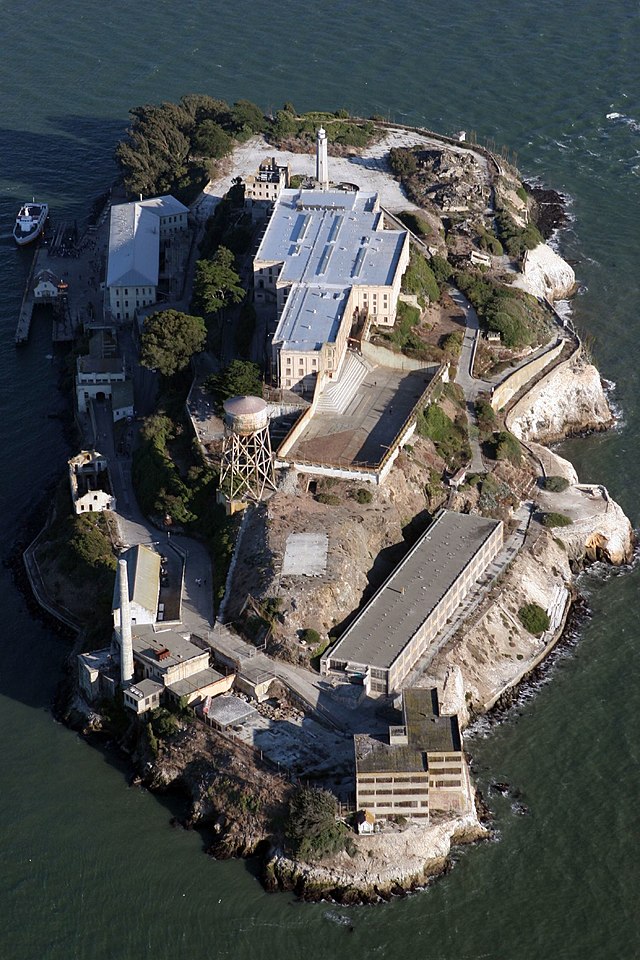The Alcatraz Prison Experiments
Once upon a time, on the rocky island of Alcatraz, a prison stood imposingly over the cold waters of San Francisco Bay. Known as the "Rock," Alcatraz earned its reputation as one of the safest and most feared prisons in the United States. However, behind its walls of concrete and barbed wire, a dark secret was hidden that transcended the stories of escapes and famous criminals.
It was 1940, and Alcatraz, with its reputation for being impregnable, became the scene of an insidious project that went beyond the curious eyes of the public. A select group of prisoners found themselves at the center of a unique experiment, carried out in the shadows of night by a group of government scientists whose actions were shrouded in mystery.
Prisoner number 1313, known as Robert "Bob" McAllister, became the unwitting protagonist of this story. Convicted of armed robbery, McAllister, with a robust build and a defiant look, was selected to be part of a project classified as "Operation Phoenix." Although he knew little about what awaited him, the promise of a reduced sentence motivated him to participate in what appeared to be a mutually beneficial agreement.
McAllister's cell became the epicenter of experimentation. The scientists, mostly dressed in white coats with impassive faces, introduced experimental chemicals into the prisoner's diet. These substances, whose names resonated with the opacity of government classification, promised to improve the stamina and mental capacity of test subjects.
The nights on Alcatraz became increasingly strange. The other prisoners, oblivious to the experiments, began to notice changes in McAllister's behavior. His gaze, once defiant, now seemed lost in an invisible horizon. His movements were more agile, as if the prison itself had disappeared from his perception. Rumors spread through the dark hallways, fueling the mystery surrounding Alcatraz.

However, as the experiments progressed, side effects began to manifest themselves in an alarming manner. McAllister experienced episodes of memory loss, followed by violent outbursts of aggression. The nights became unbearable for the prisoner, tormented by incomprehensible nightmares and visions that defied all logic.
Prison staff, initially unaware of the clandestine experiments, began to notice the deterioration in McAllister's mental and physical health. His screams filled the cells in the stillness of the night, carrying with them an aura of desperation that echoed through the dark hallways.
As chaos raged on Alcatraz, an intrepid journalist named Evelyn Carter, determined to uncover the truth behind the rumors, began to investigate. With cunning and determination, she managed to infiltrate the prison disguised as a laundry worker. Carter came across testimonies from other prisoners who, terrified, shared fragments of the story that unfolded in the darkness.
Her research led her to discover the connection between the experiments and a secret government project aimed at creating super soldiers. The scientists, encouraged by the belief in the possibility of enhancing human abilities through chemical manipulation, had chosen Alcatraz as the perfect place to carry out their tests, away from prying eyes.
Evelyn Carter, faced with journalistic ethics and the responsibility of exposing the truth, decided to risk her life to expose the experiments at Alcatraz. With the help of contacts outside the prison, she managed to send detailed reports about the atrocities taking place on the island.

The public revelation of the experiments at Alcatraz caused a national scandal. Public opinion demanded answers, and the government, forced by pressure, was forced to close the project. The scientists were put on trial, but most details about the experiments and their true objectives were kept secret under the excuse of national security.
Robert McAllister, prisoner number 1313, paid a high price for his participation in the experiments. Although he was released from Alcatraz after the project's closure, the psychological after-effects haunted him until the end of his days. The shadow of the Alcatraz prison experiments left an indelible mark on history, reminding us of the fine line between the pursuit of knowledge and the violation of ethics.
